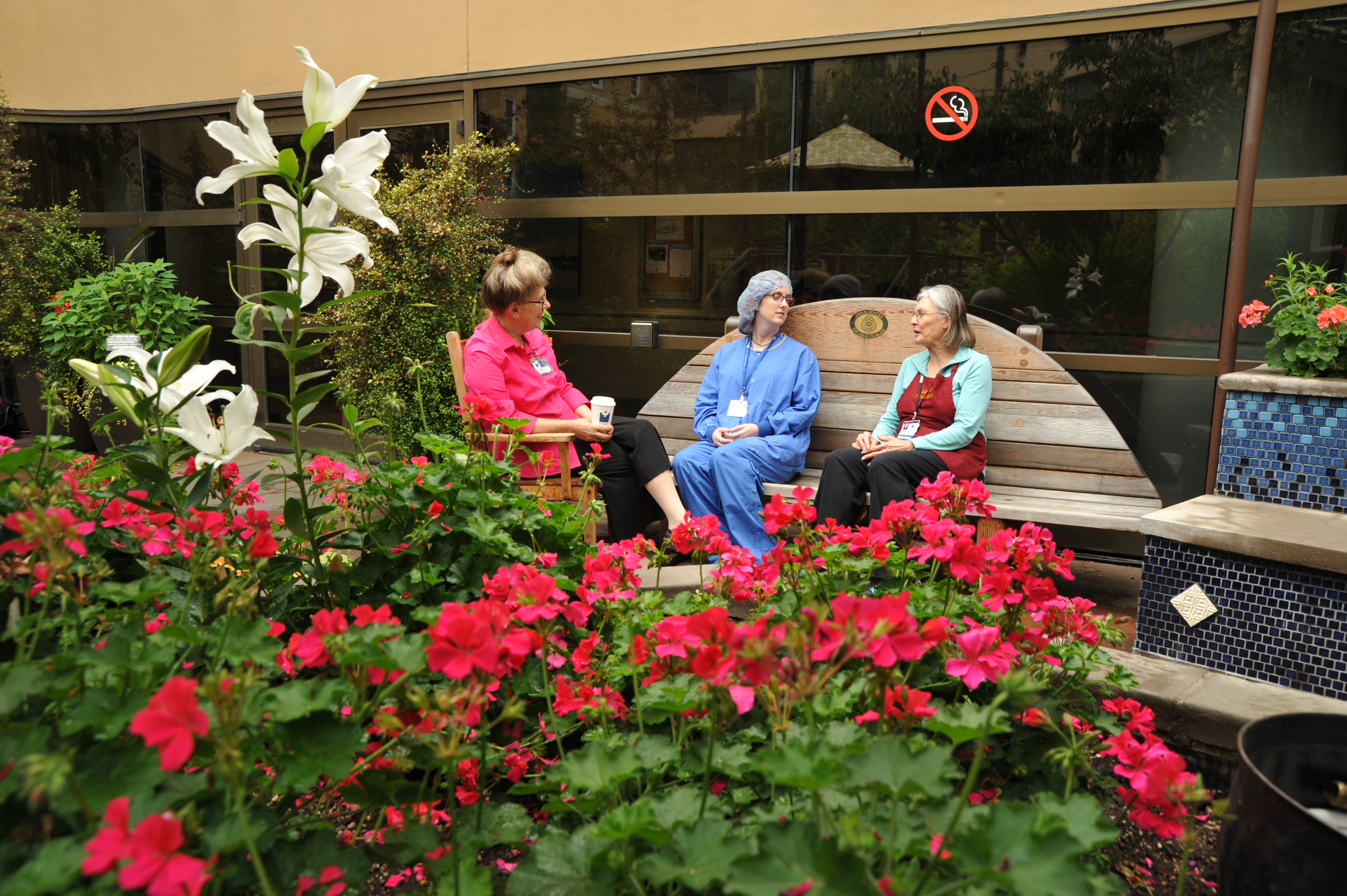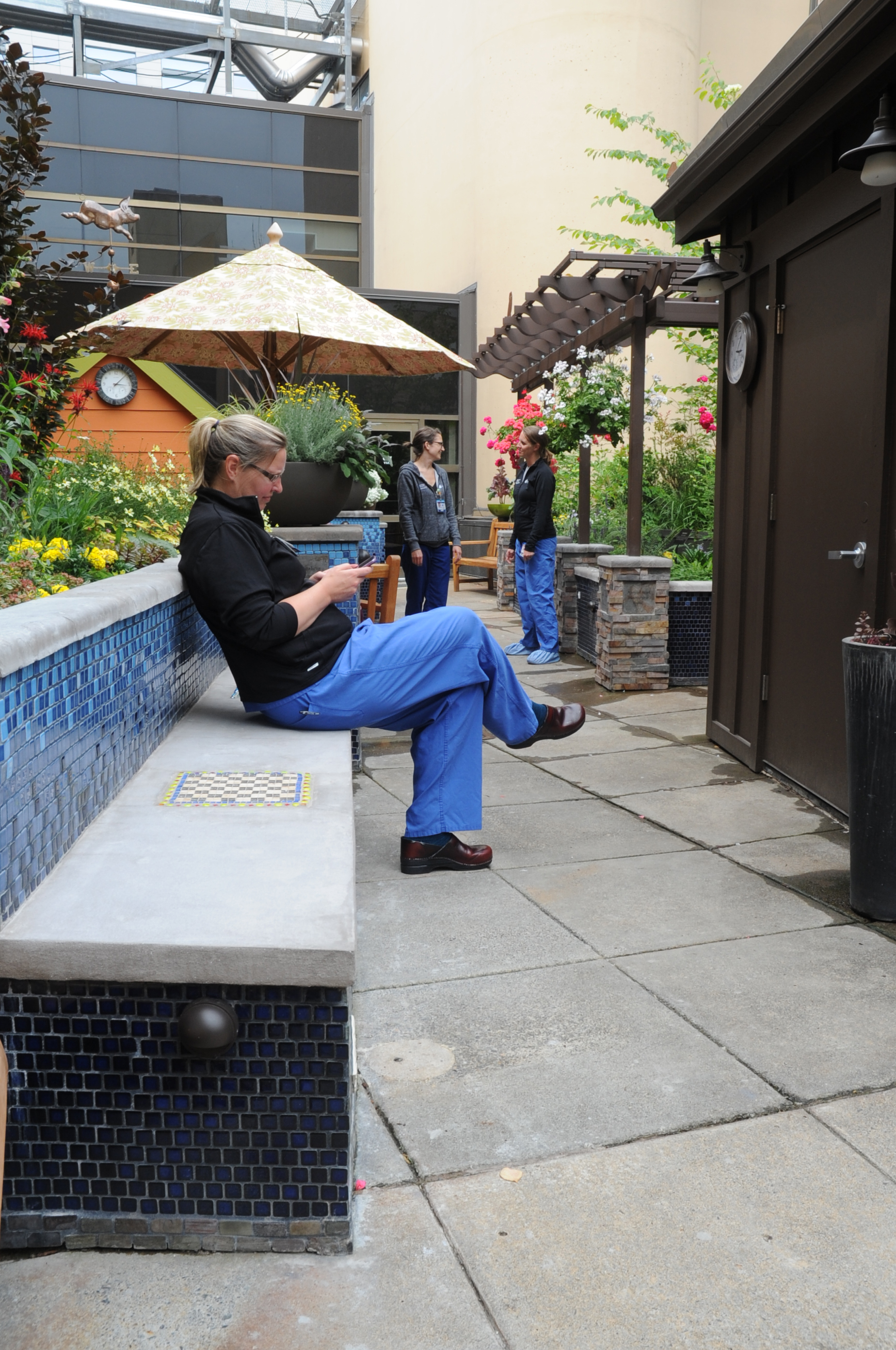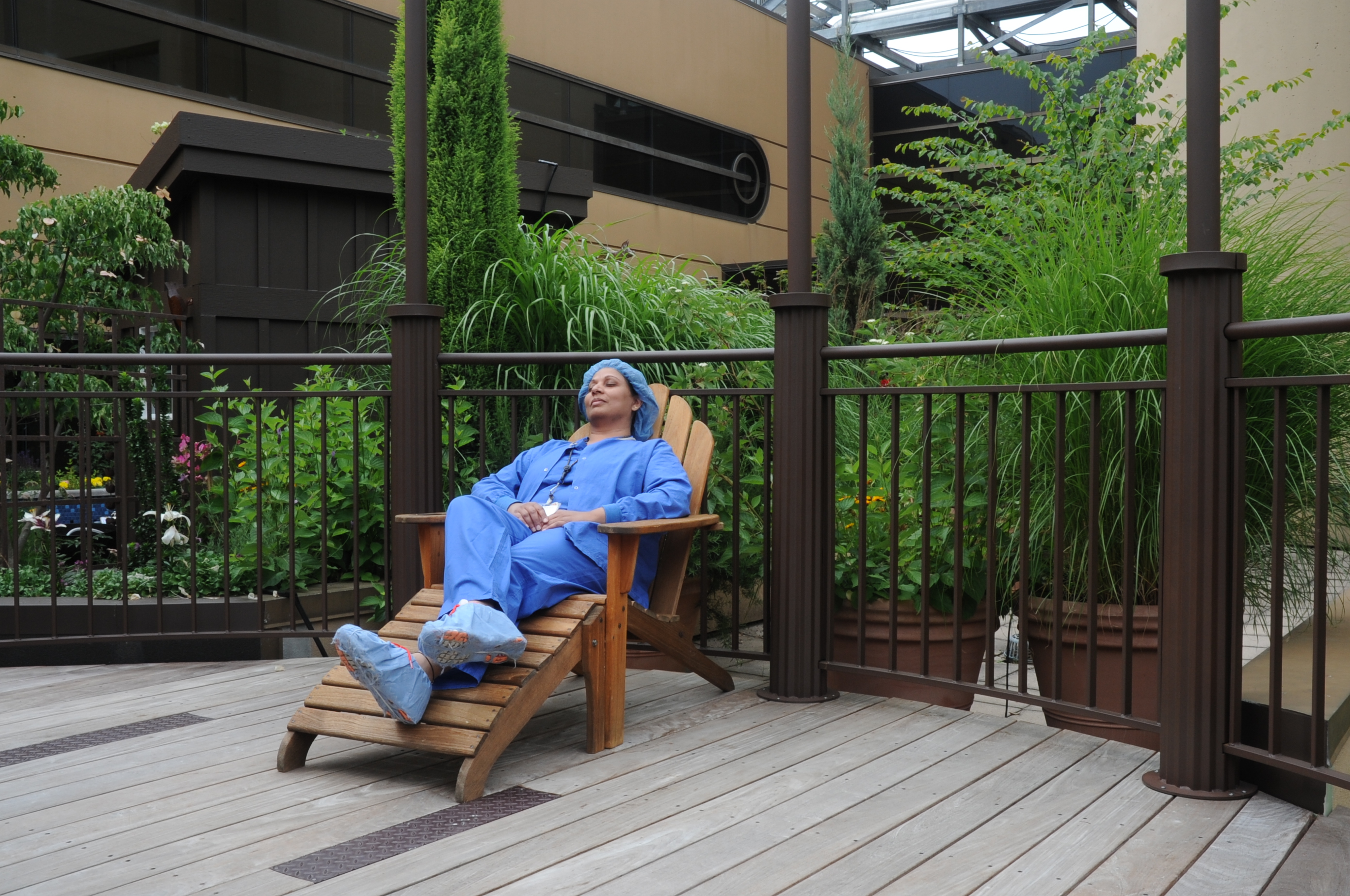Workplace stress can be brutal. Its effects, researchers have repeatedly found, are both broad and deep, impacting our health, job performance — relationships. In fact, a 2015 working paper from Harvard and Stanford Business Schools reported the alarming fact that work-related stress accounts for more deaths than Alzheimer’s or diabetes. Yet, aside from the occasional gym membership, most US companies are doing little, if anything at all, to help their employees cope.
But there are exceptions. Legacy Health, which operates multiple hospitals, including Legacy Emanuel Medical Center in Portland, runs an innovative HR program that incorporates nature as a critical component of its efforts to combat workplace stress. It’s led by the hospital’s medical director of employee health, Dr. Minot Cleveland, who is serious about his commitment to getting Legacy’s employees — from surgeons to administrative staff — outside.
A Horticultural Therapist’s Influence

A core piece of the program at Legacy Emanuel Medical Center is A Nature Place, a four-seasons garden located on a second-floor terrace of the hospital, at the threshold of its maternity and cardiovascular intensive care units. The garden, funded in large part by TKF, was purpose built four years ago as part of a research project intended to integrate nature into Legacy’s patient care — and allow researchers there the opportunity to measure its impact.
Legacy’s Teresia Hazen is a member of the research team, as well as a registered horticultural therapist, and coordinator of Legacy Health’s therapeutic garden program, of which A Nature Place is now a key part. She serves alongside Dr. Cleveland on the hospital system’s Good Health Council; it was her influence that led to the garden being incorporated into the hospital’s HR initiative, which has taken an organized approach to getting its employees outside, into this and other green spaces at Legacy’s multiple hospitals.
Life & Death & Stress
The program, while intended to foster good health overall, takes specific aim at stress, which can be particularly intense in hospital settings where physicians and other staff on a regular basis are faced with life altering decisions. Physician burnout rates, says Dr. Cleveland, are high nationwide. Nurses are providing care to patients, who are often scared and in their most vulnerable states. The stakes are high.
“We have ER nurses — on their feet for 12 hours in very mentally and physically tiring situations,” said Cleveland. “We’re urging them to take breaks in the garden. Even if they only have three minutes; these three minutes can make a real difference.”
And research bears this out. Time spent in nature helps reduce blood pressure, heart rate, muscle tension — the hallmarks of stress. The hospital’s program is supported by an ever-expanding body of research that continues to identify a myriad ways time spent in nature impacts our bodies and minds beneficially.
Getting Employees “Out”
Aside from encouraging their doctors and staff to simply spend restorative minutes in the garden, Dr. Cleveland said they also offer various types of activities and events set in the space. Activities have included mini-farmer’s market, live music and dancing; a party themed “Midnight in the Garden of Good Health” aimed at including night-shift employees who would otherwise miss out on the programming.

The idea, said Dr. Cleveland, is to draw employees outside, into the garden, helping them to create new habits. A key insight that he and his colleagues learned from their soon-to-be published Recharge @ Work study is that the support and urging of employees’ direct supervisors is essential in getting employees out and into the garden space. As a result, Legacy has made it a priority to target managers, educating them on the importance of the role they play in changing employee behavior.
This summer marks a year since the nature component, and the garden, debuted as part of the HR program. Dr. Cleveland is encouraged by the employee response.
“This year, we’ll be adding to our programming,” said Dr. Cleveland. “We’ll also be collecting a range of different types of data around how employees are using the space.” His intent is to publish their findings at some point in the future.
The hospital, says Dr. Cleveland, understands the magnitude of the importance around their efforts to foster better employee health. “This restorative time spent in nature translates not only to better employee health — but to better patient care.”

